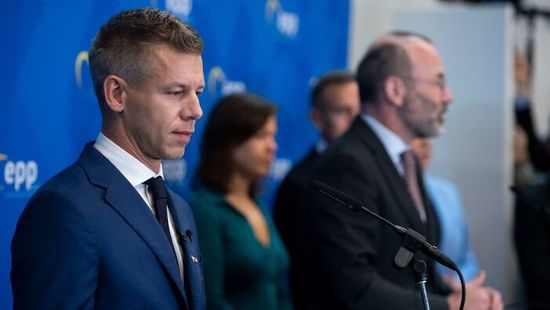Elemző: nem a Fidesz legfőbb érdeke, hogy nyilvánosságra kerüljön Magyar Péter legsötétebb titka

Az sem maradt sokáig rejtély, miért „ijedhettek meg egy ágy képétől” a baloldalon.

Only a redrafted constitution will revive the EU: there could be no worse end to this saga than imposition of German „discipline”.
„The tragedy is that the chosen vehicle of European union should have been a common currency. This ostensibly innocent tool is a weapon of mass economic destruction. It has imposed its clammy grip on divergent national economies, forcing hundreds of thousands of workers and their families to flee the »overvalued« countries of east and south Europe to seek work in the north. Others were kept at home only by government jobs funded by reckless foreign indebtedness. The reason was not just the fixing of the value of the euro to the Deutschmark, but the fixing of any weak currencies inflexibly to stronger ones. The resource cost of the euro over the past two decades must have been stupendous.
A common currency as a means of imposing wage or fiscal discipline on uncompetitive states is a crude economic sanction. As with all sanctions, it corrupts and distorts domestic politics and makes electorates hostile to external pressure. To Eurocrats this hostility, like democracy itself, is a little local difficulty. But sooner or later, push comes to shove. Greeks and Italians are toppling leaders who fail to listen to them, and voters in Germany are threatening likewise. European political union, the universalist dream of visionaries, has met its Waterloo.
Some confederacies have worked, such as the US, India and the United Kingdom (so far). But the EU was always a confection of elitist diplomacy, supported by Europe's peoples only for as long as they thought it would bring them money. It sought to craft a political entity from cultures whose differences have defied Hapsburgs, Bourbons, Napoleon and Hitler alike. Political union is a discredited orthodoxy and its advocates should retreat gracefully.
The sensible route forward is not underpinning the euro at some new and temporary frontier, and »kicking the can down the street«. It is for those states that sincerely wish to merge their political institutions with their neighbours – there must be precious few – to find common ground within the euro.”